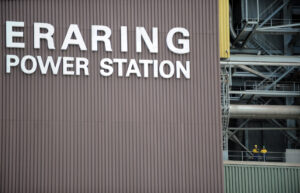The Reserve Bank now forecasts real household incomes will take longer to recover than they did during the 1990s recession and is also projecting economic growth at historical lows. Australian consumers are right to feel worried about the future.
Right now Australian consumers have less confidence than they did in April 2020 when the entire world was locked down and the pandemic was raging without any prospect of a vaccine.
That might suggest that Australians are overly pessimistic, especially given unemployment is at generational lows of 3.5%, but when you look at the statements of the Reserve Bank and its projections for the next 2 years, it is little wonder Australians are worried.
Last week the RBA not only lifted the cash rate for the 9th straight time, it signalled that there would be a plural number of rises to come. In response, the market now anticipates at least three more rate rises, with a slight chance of 4 more. That would be easily the fastest and largest raising of interest rates since the late 1980s. And Australians are well aware of what occurred after the 1980s rate rises.
Indeed even the Reserve Bank is anticipating a sharp slowing of the economy. While not suggesting a recession is imminent, in its latest Statement on Monetary Policy the RBA forecast 2 straight years of GDP growth of less than 1.8%. That would equal the record length of less than 2% growth during the 1990s recession. In reality, anytime Australia’s economy has grown by less than 2% for just one year there has been either a recession or near recession conditions such as during the GFC.
Australians are right to be wary especially as their standard of living has suffered a sharp decline in the past year as incomes fail to keep up with inflation.
The Reserve Bank of course does need to be concerned about inflation but given the expectations of recessions of slight contractions in the UK, USA and Europe the risk of a recession should be weighed much higher than they currently are.
You might also like
Feeling hopeless? You’re not alone. The untold story behind Australia’s plummeting standard of living
A new report on Australia’s standard of living has found that low real wages, underfunded public services and skyrocketing prices have left many families experiencing hardship and hopelessness.
Go Home On Time Day 2025. As full timers disconnect, part timers are doing more unpaid overtime
New research by the Centre for Future Work at The Australia Institute has revealed a disturbing new twist when it comes to unpaid overtime in Australia.
A smooth move or a tough transition? Protecting workers who’ll lose their jobs when the Eraring Power Station closes
The Centre for Future Work at The Australia Institute has urged the federal government to take charge of transitioning hundreds of workers into secure employment when the Eraring Power Station shuts down.

